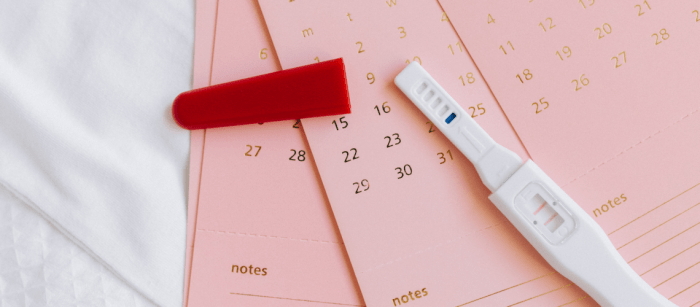Can I take Picot while pregnant? This question weighs heavily on the minds of many expectant mothers. Picot, a widely used medication, raises concerns about its safety during pregnancy. In this article, we delve into the potential risks and benefits of taking Picot while pregnant, exploring alternative medications, and discussing the effects on fetal development.
Join us as we navigate this crucial topic, empowering you with the knowledge to make informed decisions about your health and the well-being of your unborn child.
Throughout this article, we will provide clear and concise information, backed by scientific research and expert opinions. We will also address common FAQs and offer guidance on patient education and healthcare professional guidance. Whether you are currently taking Picot or considering it, this comprehensive guide will equip you with the necessary knowledge to make the best choices for your health and the health of your future baby.
Medical Considerations: Can I Take Picot While Pregnant

When considering taking Picot during pregnancy, it’s crucial to weigh the potential risks and benefits. While Picot can provide relief from allergies, its use during pregnancy should be carefully evaluated with a healthcare professional.
The recommended dosage of Picot during pregnancy is typically lower than that used for non-pregnant individuals. The duration of use should also be limited, as prolonged use may increase the risk of side effects.
Consulting a Healthcare Professional
Before taking Picot during pregnancy, it’s essential to consult a healthcare professional. They can assess your individual medical history, evaluate the potential risks and benefits, and provide guidance on the appropriate dosage and duration of use.
Can I take picot while pregnant? I’m not sure, but I’m also curious about why did beatty want to die. Did he have a terminal illness or was it something else? Either way, it’s a sad story. Anyway, back to my original question, can I take picot while pregnant? I’ll have to do some more research.
Effects on Fetal Development

The use of Picot during pregnancy has raised concerns regarding its potential impact on fetal growth and development. Studies have suggested that exposure to Picot may have adverse effects on the developing fetus.
Monitoring Fetal Health
During pregnancy, it is crucial to monitor fetal health closely to detect any potential abnormalities or developmental issues. This includes regular prenatal checkups, ultrasound examinations, and other diagnostic tests as recommended by the healthcare provider.
Long-Term Effects
The long-term effects of Picot exposure on children are still being studied. However, some research suggests that exposure to Picot in utero may increase the risk of developmental delays, learning difficulties, and behavioral problems later in life.
Patient Education

Understanding the safe and effective use of Picot during pregnancy is crucial for ensuring both your well-being and that of your developing baby. This handout provides comprehensive information on Picot’s usage, potential side effects, and precautions to consider.
Picot, a commonly prescribed medication, belongs to the class of drugs known as beta-blockers. These medications work by slowing down your heart rate and reducing blood pressure. While Picot is generally considered safe for use during pregnancy, it is essential to discuss its potential effects with your healthcare provider.
Potential Side Effects and Precautions
Like all medications, Picot can cause side effects in some individuals. The most common side effects include:
- Dizziness or lightheadedness
- Slow heart rate (bradycardia)
- Low blood pressure (hypotension)
- Fatigue or weakness
- Nausea or vomiting
- Diarrhea or constipation
- Dry mouth
- Blurred vision
It is important to note that these side effects are generally mild and transient. However, if you experience any severe or persistent side effects, it is crucial to consult your healthcare provider promptly.
Certain precautions should be taken when using Picot during pregnancy:
- Inform your healthcare provider about any underlying medical conditions, such as asthma, diabetes, or heart disease.
- Monitor your blood pressure regularly, especially during the first trimester of pregnancy.
- Avoid taking Picot in combination with other medications that can lower blood pressure, such as calcium channel blockers or nitrates.
- If you are planning to breastfeed, discuss the potential risks and benefits of Picot with your healthcare provider.
Comparison with Alternative Medications
Picot is not the only medication used to treat high blood pressure during pregnancy. Other commonly prescribed alternatives include:
| Medication | Mechanism of Action | Key Differences |
|---|---|---|
| Labetalol | Alpha- and beta-blocker | Lower blood pressure more effectively than Picot, but can cause more side effects. |
| Nifedipine | Calcium channel blocker | Can cause headaches and dizziness, but is generally well-tolerated. |
| Hydralazine | Vasodilator | Can cause flushing and palpitations, but is effective in lowering blood pressure. |
Your healthcare provider will consider your individual needs and preferences when selecting the most appropriate medication for you during pregnancy.
Healthcare Professional Guidance

Prescribing Picot during pregnancy requires a thorough understanding of its indications, contraindications, and monitoring strategies. Healthcare professionals should carefully evaluate the patient’s medical history, current health status, and potential risks and benefits before prescribing Picot.
Appropriate Indications
- Short-term treatment of mild to moderate pain, such as headaches, muscle aches, or back pain
- Reduction of fever
- Treatment of osteoarthritis or rheumatoid arthritis (short-term use only)
Contraindications, Can i take picot while pregnant
- Known allergy or hypersensitivity to Picot or other nonsteroidal anti-inflammatory drugs (NSAIDs)
- History of severe gastrointestinal bleeding or ulceration
- Severe renal impairment
- Severe hepatic impairment
- Third trimester of pregnancy (due to potential for premature closure of the ductus arteriosus)
Monitoring and Management Strategies
Patients taking Picot during pregnancy should be closely monitored for potential adverse effects, particularly:
- Gastrointestinal disturbances (e.g., nausea, vomiting, diarrhea)
- Renal function
- Fetal growth and development
Regular blood pressure monitoring is also recommended, especially in patients with underlying cardiovascular conditions.
If any adverse effects occur, the healthcare professional should reassess the patient’s condition and consider discontinuing or adjusting the dosage of Picot.
FAQ
Is it safe to take Picot during the first trimester of pregnancy?
The safety of Picot during the first trimester of pregnancy has not been fully established. Studies have shown conflicting results, and further research is needed to determine its effects on fetal development during this critical period.
What are the potential side effects of taking Picot during pregnancy?
Potential side effects of taking Picot during pregnancy include nausea, vomiting, diarrhea, headache, and dizziness. In rare cases, more serious side effects such as liver damage and pancreatitis have been reported.
Are there any alternative medications that can be used instead of Picot during pregnancy?
Yes, there are several alternative medications that can be used instead of Picot during pregnancy. These include acetaminophen, ibuprofen, and naproxen. However, it is important to consult with your healthcare provider before taking any medications during pregnancy.

